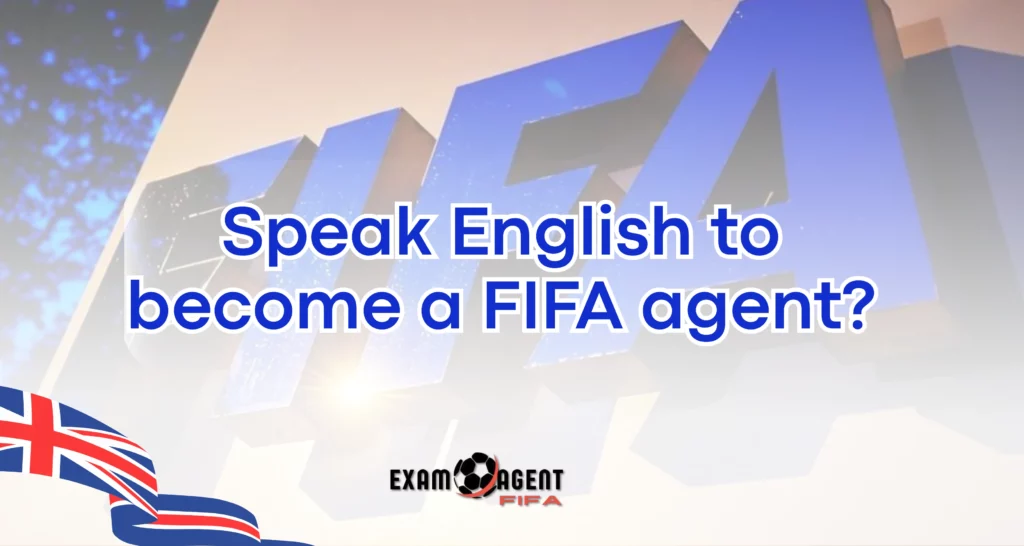
The question of English proficiency is a common one for candidates wishing to become a FIFA agent. Indeed, in an increasingly globalized football industry, this legitimate question deserves in-depth analysis. Although the profession of FIFA player agent is regulated globally, it nevertheless operates in varied linguistic contexts depending on the country and league.
English, however, remains the lingua franca of international football. It is used in official regulations. To what extent is fluency in English a prerequisite for working effectively as an authorized FIFA agent?
FIFA’s official language requirements
FIFA, as the world governing body of football, establishes uniform standards for the certification of players’ agents. The FIFA Regulations on Players’ Agents are the reference document governing this profession. Adopted in 2023, these new regulations modernized the certification system. However, they maintain certain fundamental requirements.
Contrary to popular belief, FIFA does not explicitly require English proficiency as a requirement for admission to the FIFA Agent exam. Indeed, candidates can generally choose from several languages offered during the test. These languages include French, Spanish, German, and Italian. Other languages are available depending on the edition.
English in FIFA agent training and exam
Preparation for the FIFA agent exam benefits considerably from a good command of English. Indeed, reference manuals, international case studies, and the most comprehensive teaching resources are often available in English. This gives English-speaking or bilingual candidates access to a wider range of study materials.
Exam structure and language choices
The FIFA agent exam assesses three main areas: football law, transfer regulations , and contractual aspects. Furthermore, candidates who are fluent in English may sometimes choose to take the exam in that language. This strategy allows them to avoid the guesswork associated with translations. As a result, they benefit from more precise terminology.
Daily practice of a FIFA agent: is English essential?
International negotiations and communication
In everyday professional practice, English plays a central role for any FIFA agent who aspires to transcend national borders. Indeed, negotiations with foreign clubs, discussions with international executives, and exchanges with colleagues from other countries are conducted primarily in English.
This predominance is explained by the very structure of the modern football industry. Moreover, the major European leagues (Premier League, Bundesliga, Serie A, La Liga) attract players from all over the world. They create a naturally multilingual environment where English is the common denominator.
Contractual and legal documentation
Standard transfer contracts, partnership agreements, and official correspondence with governing bodies frequently use English. Furthermore, FIFA agents who are fluent in this language can review these documents directly without the need for translators. This reduces costs and processing times.
Sports legal English has its own terminological specificities. Indeed, terms such as “ transfer fee ,” “ release clause ,” “solidarity mechanism,” and “training compensation” have precise definitions in FIFA law. However, a translation can alter or simplify these definitions.
Can you succeed without mastering English?
National level exercise
It’s perfectly possible to pass the FIFA agent exam and work professionally without being fluent in English. In fact, many French, Spanish, German, and Brazilian agents have developed successful careers by focusing on their domestic markets.
This approach offers the advantage of local specialization. It requires in-depth knowledge of the national championship, privileged relationships with regional clubs, and a perfect understanding of the local legal and cultural context. These skills can partially compensate for language limitations.
Limitations and obstacles
However, not being fluent in English imposes significant restrictions on long-term professional development. Indeed, international growth opportunities remain limited. As a result, this potentially reduces revenue and client portfolio diversification.
Non-English speaking FIFA agents may also encounter difficulties with:
- Correctly interpret international regulatory developments
- Actively participate in continuing education offered by FIFA
- Access best practices developed in other markets
- Negotiate effectively with foreign clubs on transfer opportunities
Our training courses to excel as a FIFA agent
Our training organization offers programs specifically designed to effectively prepare for the FIFA agent exam . These programs also develop the language skills necessary for professional practice. In addition, our programs incorporate the latest regulatory developments and anticipate future trends in the profession.
PDF Formula (€297) : Clear written support, illustrated with concrete examples, to understand FIFA regulations and assimilate fundamental legal concepts.
PDF + Quiz Package (€397) : Take advantage of interactive quizzes to test your knowledge and strengthen your understanding of legal matters.
Video Package (€497) : Ideal for visual profiles, this package includes detailed video lessons accompanied by explanatory diagrams to simplify the key concepts of sports law.
Each formula has been designed to offer progressive, rigorous learning in line with official FIFA requirements.
English: a strategic investment for the future
Investing in learning English is a strategic choice whose benefits far outweigh the initial costs. Indeed, bilingual FIFA agents gain access to more diverse professional opportunities. In addition, they negotiate more advantageous contracts and develop more international client portfolios.
Conclusion: English, the key to international success
Ultimately, although speaking English is not a formal requirement to become a FIFA agent, this skill represents a decisive competitive advantage in the contemporary football economy. On the one hand, English facilitates exam success by allowing for a direct understanding of source documents. On the other hand, it paves the way for a dynamic and prosperous international career.






